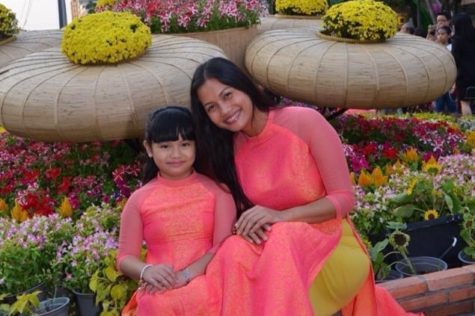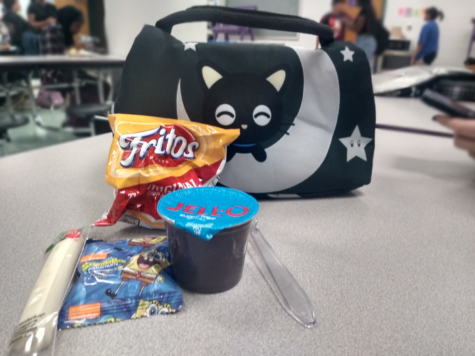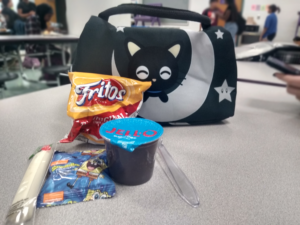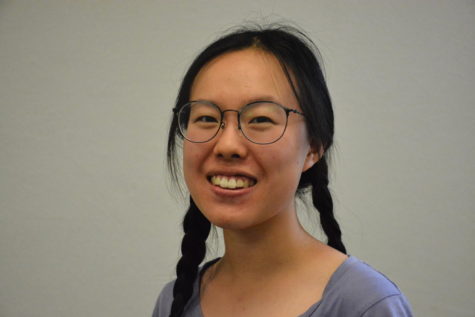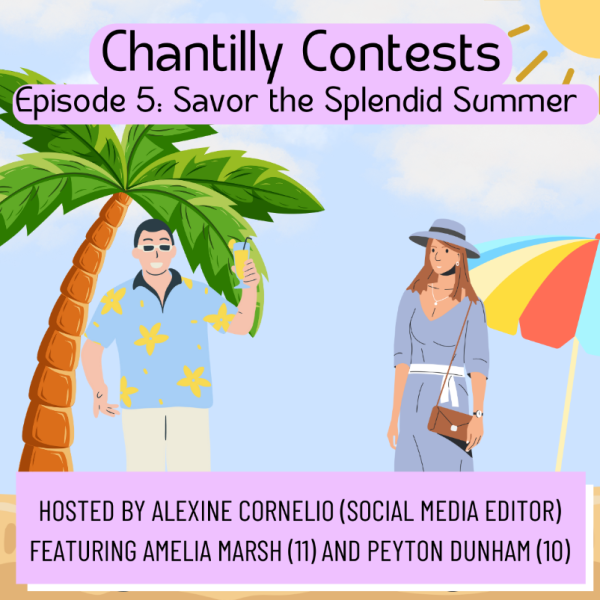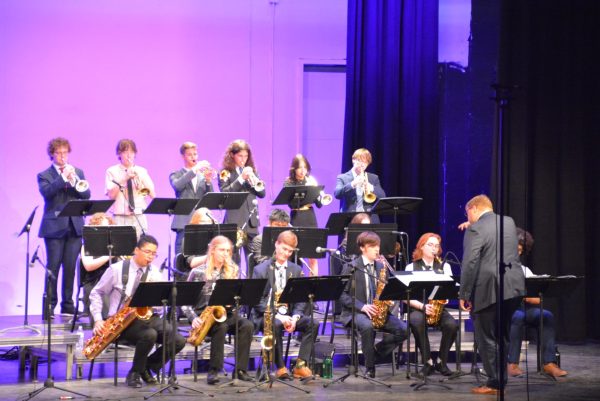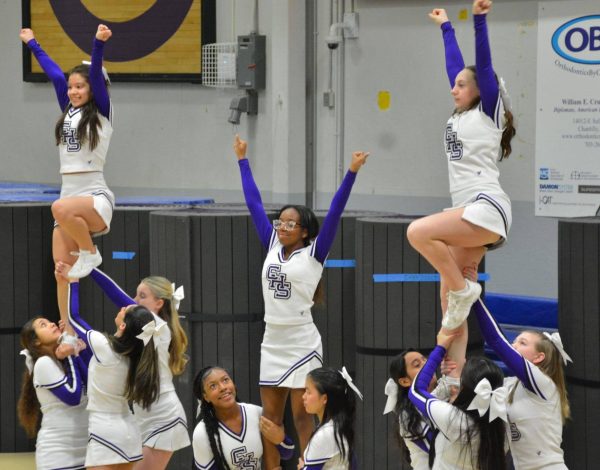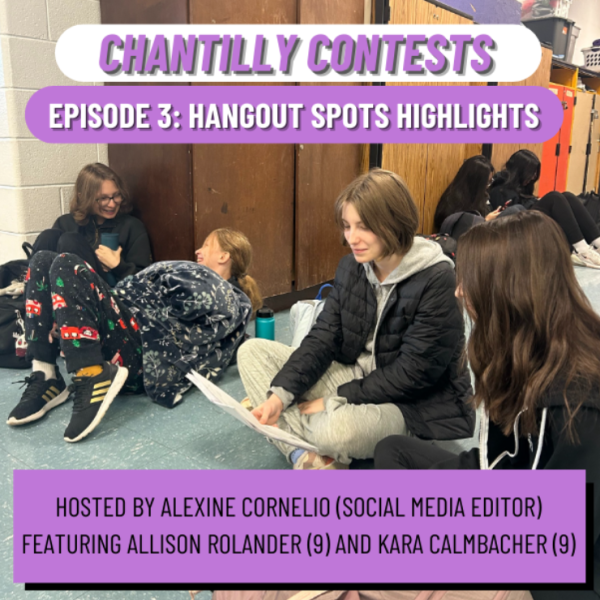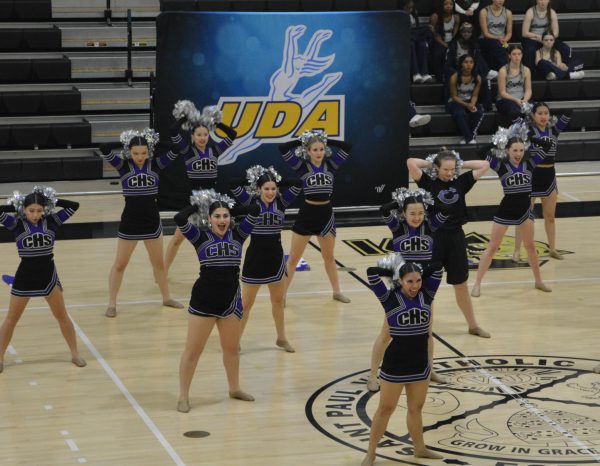Podcast: Culture Shock
June 4, 2023
[MUSIC]
SIXUAN WU: Hello, and welcome to The Purple Tide’s “Culture Shock” podcast. I am your host Sixuan Wu. Moving to a new place is no easy task, especially if you are moving across the globe to a different country. From considering how other people do certain things as weird to suffering from loneliness and stress, many international students find it difficult adjusting to a new way of life that can be completely different from what they are familiar with. Today I have two students here with me, juniors Neil Raji John and Sai Shriram, to share about their experiences adjusting to the US high school culture. Welcome, guys.
NEIL RAJI JOHN: Hi.
SAI SHRIRAM: Hello.
SW: Okay, so first, tell us more about yourselves. Where did you used to live and when did you come to the US?
NRJ: Before moving here, I was in Oman. I moved here midway through sophomore year.
SS: I was born in India and I was pretty much there my entire life. And I moved from India my sophomore year.
SW: For both you guys this is your second year.
SS: Yeah.
SW: How are you guys adjusting to the U.S. high school stuff so far?
SS: Well, right now, I’m pretty much used to it. But when I first moved, it was a whole lot of information, and it was mind blowing. It’s just like, “Whoa, that’s a lot of things to take in at one time,” you know?
NRJ: Yeah, schooling in the rest of the world is completely different to the U.S. It was a huge change, especially when you move midway through high school. It did take me a lot of time to get used to it. It was a huge change, but after a year and you meet people, you sort of get used to it.
SW: For you guys, what was the hardest part adjusting to Chantilly?
SS: I feel like the courses and all that, because education from where I’m from was completely different. Everyone [was] in the same grade, you know, there wasn’t like you get to pick your courses and all that. And there were just like a whole lot of options you get to choose from. It was hard to pick, and I didn’t know a lot of stuff my sophomore year. I was just like, “Okay, I’ll just pick whatever class.” But now when I look back at it, I feel like I could have [done] so many things different[ly] if I had known what I know right now.
SW: For example, what is one thing you would have done differently?
SS: Honestly, I feel like I would have taken [Computer Science] Principle last year because I’m taking CSA (Computer Science A) this year and I’m struggling with that class. I feel like if I had taken principles last year, that would have been better.
NRJ: Yeah, going off what Sai said, when I moved here, I didn’t know what APs were. I just picked a lot of random courses. I didn’t really know if they would play a major role [in] college and like what they did, but once I [found] out what you will actually do and why it matters, and I was like, “Oh, I should have done this.”

SW: Have you ever found any everyday or mundane stuff weird when you first came here? So for example, for myself, I came from China at the beginning of my junior year, and one thing that I think is really weird is the bathroom pass. Have you guys ever experienced anything like that?
SS: Just like having to call into school, get a day off or anything, that was all new, because in India, we didn’t have to do any of that. We just [would] not go to school and the next day we would show up with a letter from our parents, and that was it. Bathroom passes and all that is completely new.
NRJ: Yeah, and I have to say there’s a lot of stuff here that I’m not really used to, like the FCPSOn policy, using technology in class and stuff like [that]. It was a huge change, but you sort of get used to it.
SW: So Neil, in your old school, did you guys not use technology, like computers and stuff?
NRJ: It was a textbook and like notebooks. You just took notes. Yeah, and you just study off of your notes.
SW: So which one do you like better?
NRJ: I’d have to say the FCPSOn policy is really good. There’s a lot of assignments, don’t get me wrong, but you get so much more information and you’ll do actual research and stuff.
SW: Have you guys ever felt like not being a part of the community? Like feeling like an outsider at the beginning, or any hardship like that?
SS: At the beginning, yeah. They all have their own groups and community, so it was hard to get into it. But I feel like once you take some time and get to know the people, you really get used to it and feel accepted.
NRJ: Yeah, I agree. When I moved here, I was the new kid, you know, and I was like fresh off the boat. It was hard at first, then you meet people with similar experiences and stuff, and like “Oh, it’s not just me.” You know?
SW: So looking back on your experience, what is your biggest growth or accomplishment?
SS: I feel like finding people who are like me, like I met Neil and [was] genuinely surprised that they are also new to this place like me, and I can connect with them. And that was like, the best thing that ever happened to me this year.
NRJ: Yeah. Like finding more people that have been through you’ve been through can make you feel more at home, I’d say.
SW: Okay, so the people is the best part? That’s what makes it all better. What advice would you give to others who are new to the country or the environment?
SS: I’d say it’s easy to feel intimidated by everyone new, you know, getting used to the new accent and all of that. It’s all hard, but you will definitely get through it. You just have to push through and talk to more people, and kind of like, be confident about it. That’s about it.
NRJ: Yeah, that’s what I’d say. It is hard to push out of the “Oh, they’re much better than me,” “Oh, I’m the new kid” and stuff. But like I’d say joining clubs, meet[ing] people like that. You might even meet someone that went through something you went through, right?
SW: Well, I guess that’s mostly it. Thank you guys so much for joining me today. It’s a lovely conversation. And to everyone who is tuning in today, thank you for listening to the “Culture Shock” podcast. For more information, articles and multimedia materials, please check out our website chantillynews.org. This has been your host Sixuan Wu. Until next time.
[MUSIC]


